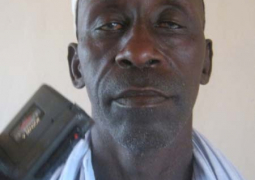When faced with a survival situation, clean drinkable water is often the most important consideration. People have survived without food for weeks or even months, but go without water for even just one day and the survivor will be in desperate straights indeed.
Knowing that water is by far the most important nutrient for the human body (besides oxygen) and, in particular, during a survival situation when finding potable water may not be easy, the question becomes - just how long can the human body survive without adequate water?
To maintain a high level of health and efficiency even in ideal environments, a minimum of two quarts of clean water per day per person is the generally accepted rule of thumb. In very hot or cold or very dry environments, or if you are physically active, two quarts of water a day may not be enough to sustain life over a period of days or weeks.
Water lost through sweating and normal respiration must be replaced in order to stay healthy and function at top efficiency. Water is also needed to process the food you eat, especially if it is salty or you eat heavy foods like meat.
In general, the higher the temperature the greater your water consumption needs to be. If you are active or exposed to the hot rays of the sun you may need upwards of a gallon of water per day to stay healthy.
Although two-thirds of the human body by weight is composed of water, this water is needed for circulation and other bodily processes including respiration and converting food to energy. If you are losing more water than you are taking in, dehydration will occur.
It has been shown that if you lose just 2.5% of your body weight from water loss, you will lose 25% of your efficiency. For a 175 pound man, that is only about two quarts of water. As the survivor dehydrates, his blood becomes thicker and loses volume.
This causes the heart to work harder and circulation of blood to be less efficient. In a survival situation, losing a full one quarter of your physical and mental abilities due to dehydration could mean the end of your life. Bottom line: drink plenty of fluids whether you feel thirsty or not so that you maintain peak efficiency.
Back home we must ensure that water is accessible and affordable to all, especially clean drinkable water.
"Water is the most critical resource issue of our lifetime and our children?s lifetime. The health of our waters is the principal measure of how we live on the land."
Luna Leopold



